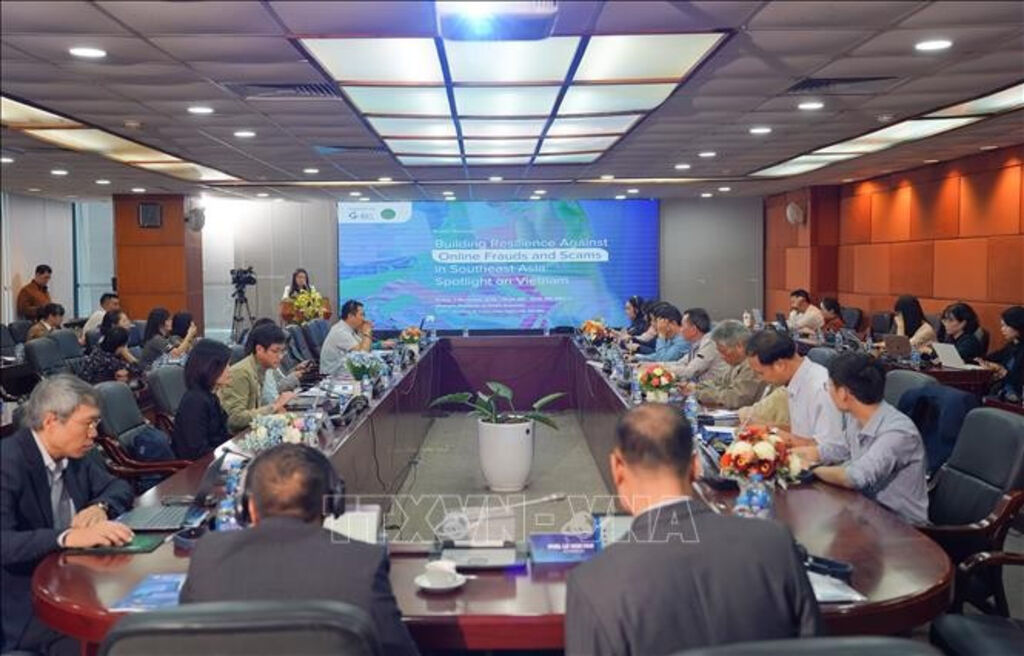 |
| An overview of the international seminar, themed “Building resilience against online frauds and scams in Southeast Asia: Spotlight on Vietnam"__Photo: VNA |
Delegates attending an international seminar, themed “Building resilience against online frauds and scams in Southeast Asia: Spotlight on Vietnam,” have proposed recommendations and solutions suited to Vietnam’s conditions to strengthen national capacity in ensuring information security and cybersecurity, while enhancing scientific cooperation and social communication to raise public awareness of digital risks.
The seminar was held in Hanoi on November 7 by the Institute of Human Geography and Sustainable Development under the Vietnam Academy of Social Sciences, in collaboration with the Tech for Good Institute (TFGI) of Singapore.
Cybercriminals are increasingly exploiting emerging technologies such as artificial intelligence (AI) to automate and personalize fraudulent activities. In 2024, Asia accounted for more than half of the total global financial losses related to scams.
Vietnam’s digital transformation has achieved remarkable progress. However, similar to other countries in the region, online scams and fraud cases are on the rise. Last year, authorities recorded 10,000 online fraud cases, with estimated losses of nearly USD 759 million.
From January to August 2025 alone, the number of online scams increased by 65 percent compared to the same period last year. These figures highlight the urgent need to strengthen domestic resilience and enhance cross-border cooperation to combat transnational cybercrime.
Citra Nasruddin, Program Director at TFGI, said that the institute recognizes the signing of the United Nations Convention against Cybercrime in Hanoi (Hanoi Convention) in October as a significant milestone.
She expressed her hope that this seminar can contribute to identifying concrete steps to safeguard the region’s digital future.
Keith Detros, Program Manager at TFGI, cited the results of the institute’s latest report, named “Building Resilience Against Digitally-enabled Scams and Fraud in Southeast Asia: A Whole-of-Society Approach,” as saying that governments around the world are responding to online scams and fraud in various ways, from new laws and regulatory measures to public-private partnerships, consumer education campaigns, and community initiatives.
However, given the rapidly evolving and cross-border nature of digital fraud, countries need to adopt a whole-of-society approach in the coming time to protect people and maintain trust in the digital ecosystem, he added.
To effectively prevent and combat cyberattacks, Dr. Nguyen Thanh Binh, a cybersecurity consultant at FPT Corporation and a lecturer at Phenikaa University, suggested raising awareness and fostering critical thinking skills, rather than relying solely on technological solutions, given that the sophistication of today’s cyberattacks lies in criminals’ deep understanding of human behavior.- (VNA/VLLF)









